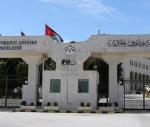You are here
Some regional countries’ continuous challenges
Oct 26,2014 - Last updated at Oct 26,2014
Across the region, some of the more stable countries continue to face political and military challenges.
Of particular note at this point in time are Turkey and Saudi Arabia, for very different reasons.
Turkey is currently mired in a dilemma triggered by prioritising its objectives in Syria to effectively confront the Islamic State (IS).
Turkey is focused on toppling the Syrian regime by creating a buffer zone along its border of “liberated areas” to protect groups loyal to the aim of creating a pro-Turkey Syrian government.
Recent developments on the Turkish border have not gone according to plan. The battle for Kobani attracted global attention and raised questions about the Turkish president’s true intentions.
As events in Kobani developed, it became clear that Turkey was refusing to allow Kurdish refugees across the border, and did not provide any military supplies to the Kurdish peshmerga fighting IS.
These developments are likely to escalate tensions between Turkey and the Kurdish population in the region, especially given the fact that the reconciliation process between these two parties has reached somewhat of a dead end.
Turkey’s actions during this incident have had global analysts and media, along with EU and NATO member countries, asking questions.
Turkey’s clear lack of diplomacy in these matters and apparent lack of commitment to confront IS place it in a very difficult place diplomatically and strategically.
Another stable country in the region that is facing several challenges is Saudi Arabia.
The direction of events in Syria, Iraq and, more recently, Yemen, increased the risks and challenges for the Saudis.
Saudi Arabia is incongruous in its strategy of fighting the Muslim Brotherhood in the region, and supporting Turkey’s vision for Syria, which is definitively pro-Muslim Brotherhood.
Moreover, failure to achieve a strategic agreement with Iran will increase challenges for Saudi Arabia exponentially.
The Saudis took an aggressive stance against Iran in Syria, with the Saudi foreign minister accusing Iran of occupying the crumbling state.
They made other inflammatory remarks, including on the death of the Shiite cleric Sheikh Al Nimer.
Saudi Arabia would benefit from taking a more flexible and tolerant approach vis-à-vis the ongoing regional crises.
It would help it ease regional tensions, given recent reports of growing instability in the eastern parts of the country, the escalation of the situation in Yemen and the internal struggle with extremist Wahhabi clerics.
Saudi Arabia must also be aware of the developing situation in the majority-Shiite Bahrain where all opposition groups boycotted the elections, fostering chaos in this small Kingdom.
These developments could lead to a surprising few weeks, with surprising consequences for some.













